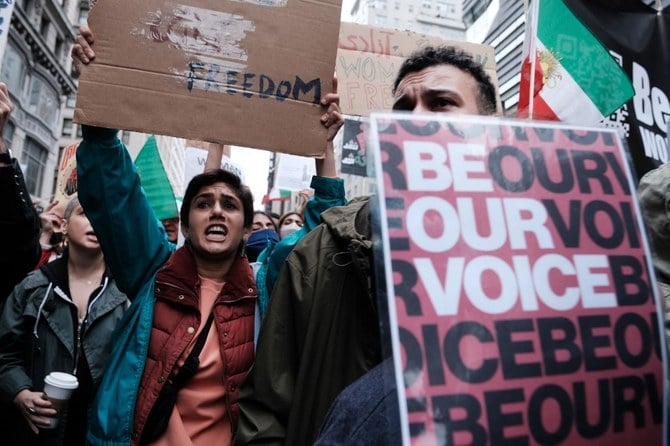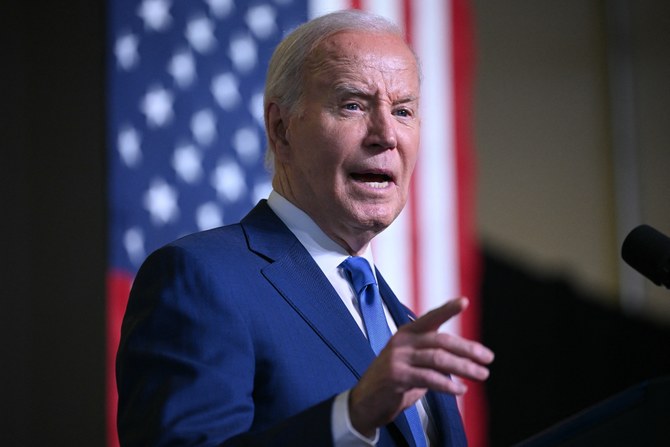
President Joe Biden’s nominee to be the new commander of US Central Command, Lt. Gen. Michael Kurilla, this week gave a briefing to Congress in which he stated that Iran was the No. 1 destabilizing actor in the Middle East. He admitted that any sanctions relief that releases funds to Tehran would help it fund its proxies and their terrorist activities across the region. It is surprising that such a statement came from a Biden nominee while the current administration is adamant it wants to return to the Iran nuclear deal. Could it signal a shift in policy ahead of a possible flip in the balance of power in Congress following the midterms in November?
The Republicans are taking a firm stance and have insisted on oversight of any new deal, otherwise they will sabotage it. In the meantime, Biden last week fell to the lowest approval rating since the beginning of his presidency and it is likely there will be a change in Congress following the midterms, perhaps even in both houses. If that were to happen, the Republicans would make life much more difficult for the Biden administration’s foreign policy team.
A letter presented last week and signed by 33 senators warned Biden that Congress would block implementation of a renegotiated nuclear deal if it was not given oversight. This will present a real hurdle for any deal with Iran if the Senate flips in November. The Republicans will not tolerate Iran’s destabilizing activities for the sake of a nuclear deal that is becoming less and less relevant as a result of Iran’s breakout time being reduced due to its increased uranium enrichment following Donald Trump’s exit from the original deal in 2018.
On the other hand, Iran is not really helping Biden by showing any goodwill. In fact, in Republican circles, people are talking of American humiliation as the Iranians have refused to talk directly to their American counterparts during the negotiations in Vienna. Instead, European diplomats have been shuttling between rooms passing on messages.
If Biden is planning on gradually shifting his Iran policy in anticipation of a change in Congress and as a result of the Iranians being as stubborn as ever, that would be a smart move. The Iranians are requesting the lifting of all sanctions and at the same time asking Biden to give guarantees that the deal will not be reneged on by a future president. However, their demands simply cannot be met. Biden cannot remove all sanctions. Those pertaining to Iran’s destabilizing activities cannot be removed as long as Tehran does not change its behavior. And there is no way that Biden can guarantee the maintenance of the deal.
On the Iranian leaders’ side, there is a feeling that they have endured the US pressure and won. They outlasted Trump and his sanctions. And if they did not make concessions to Trump, why would they make any to Biden? They are also in a period where the regime needs to step up its regional activities, not curtail them. Iran is losing in Iraq and in Yemen, so offering concessions on regional activities would be viewed as an admission of defeat.
The Iranian leadership is very keen to show its constituency that it does not bow to the US and that it is negotiating from a position of power, not a position of weakness. The hard-liners who long criticized Hassan Rouhani and Javad Zarif for bowing to the US in the original nuclear deal cannot be seen as doing the same. But this also puts Biden in a corner. He campaigned on the promise of agreeing a longer and stronger deal, but in the face of a more rigid Iranian administration he will have to give more to get a weaker and shorter deal, including a significantly shorter breakout time.
If the US president shows he will not tolerate Tehran’s destabilizing activities, it might drive the Iranians to reconsider.
Dr. Dania Koleilat Khatib
Putting pressure on Iran would be a good negotiating tactic for Biden. The Iranians are known to keep raising the bar until someone slaps them on the wrist. If Biden shows that he will not tolerate Tehran’s destabilizing activities and that he will not succumb to blackmail, even if he has to scrap the deal altogether, that might drive the Iranians to reconsider. Two weeks ago, US Special Envoy Robert Malley said that a return to the deal was impossible while Iran holds four American hostages. Some in the region have been critical of this demand, noting that the US is only asking about four hostages and has not mentioned the four capitals that have been hijacked by the regime, alluding to Iran’s destructive influence in Lebanon, Syria, Iraq and Yemen. However, this demand is a signal from Washington to the Iranians that it will not return to the deal at any cost.
Biden’s positive approach does not seem to have worked with Iran, meaning a revision is needed. What is really significant is that Kurilla stressed the importance of working with allies in the region. This might be a wake-up call to the Biden administration, which has tried to distance itself from the states in the region that have been allies of the US for decades. Maybe the president now realizes that he needs to work with the Arab Gulf states and that a so-so deal with an unreliable Iranian leadership would not be enough to bring stability to the region. Domestically, a tougher approach toward Iran would also allow Biden to fend off the Republican resistance that is most likely coming with force in November.
Dr. Dania Koleilat Khatib is a specialist in US-Arab relations with a focus on lobbying. She is co-founder of the Research Center for Cooperation and Peace Building, a Lebanese nongovernmental organization focused on Track II.
Disclaimer: Views expressed by writers in this section are their own and do not necessarily reflect Arab News" point-of-view












